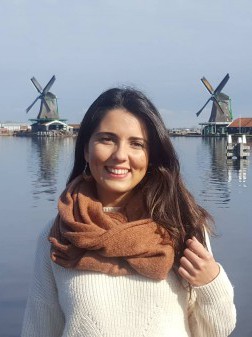resumo
The synthesis of molybdenum(0) tricarbonyl and tetracarbonyl complexes of the form [Mo(CO)(3)(ptapzpy)Br] (1) and cis-[Mo(CO)(4)(ptapzpy)]Br (2) is reported, where ptapzpy = 2-(1-propyltrimethylammonium-3-pyrazolyl)pyridine. Preparation of these derivatives was accomplished either through thermal replacement of CO in Mo(CO)(6) (for 1) or substitution under milder conditions of piperidine ligands in the precursor cis-[Mo(CO)(4)(pip)(2)] (for 2). The crystal structures of the ligand [ptapzpy] Br and complexes 1 and 2 were determined. Thermal treatment of 2 at 125-150 degrees C leads to mono decarbonylation and formation of 1. On the other hand, oxidative decarbonylation of 1 and 2 by reaction with tert-butylhydroperoxide (TBHP, 10 equiv.) gives a molybdenum oxide hybrid material formulated as [Mo3O9([ptapzpy]Br)(2)]center dot nH(2)O (3), which was characterised by FT-IR and Raman spectroscopy, thermogravimetric analysis, and C-13{H-1} CP MAS NMR spectroscopy. Compounds 1-3 were effective (pre)catalysts for the epoxidation of cis-cyclooctene at 55 degrees C with aqueous H2O2 or TBHP (slightly better results were obtained with the former). The characterisation of the Mo-containing solids isolated after the catalytic reaction showed that poorly soluble beta-octamolybdate salts, (L)(x)[Mo8O26], were formed from 1-3 with TBHP and from 1 with H2O2, while soluble oxoperoxo species were formed from 3 with H2O2. These findings helped to explain the different catalytic performances obtained.
palavras-chave
CARBONYL-COMPLEXES; HYDROGEN-PEROXIDE; DERIVATIVES; TUNGSTEN; REACTIVITY; MO; 1,10-PHENANTHROLINE; OCTAMOLYBDATE; PRECURSORS; REDUCTION
categoria
Chemistry
autores
Nogueira, LS; Neves, P; Gomes, AC; Lavrador, P; Cunha-Silva, L; Valente, AA; Goncalves, IS; Pillinger, M
nossos autores
Grupos
G1 - Materiais Porosos e Nanossistemas
G4 - Materiais Renováveis e Economia Circular
G5 - Materiais Biomiméticos, Biológicos e Vivos
agradecimentos
This work was developed in the scope of the projects (Associate Laboratories) CICECO-Aveiro Institute of Materials-POCI-01-0145-FEDER-007679 [FCT (Fundacao para a Ciencia e a Tecnologia) ref. UID/CTM/50011/2013] and REQUIMTE-LAQV-POCI-01-0145-FEDER-007265 (FCT ref. UID/QUI/50006/2013), financed by national funds through the FCT/MEC and when applicable co-financed by FEDER (Fundo Europeu de Desenvolvimento Regional) under the PT2020 Partnership Agreement. The FCT and the European Union are acknowledged for a PhD grant to L. N. (PD/BD/109666/2015), and post-doctoral grants to P. N. (SFRH/BPD/110530/2015), A. C. G. (SFRH/BPD/108541/2015) and L. C-S. (SFRH/BPD/111899/2015), co-funded by MCTES and the European Social Fund through the program POPH of QREN.








